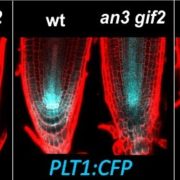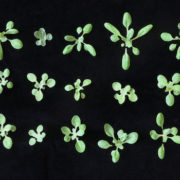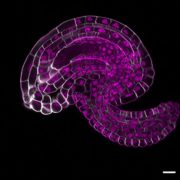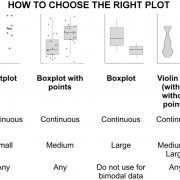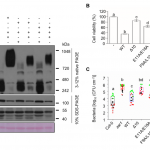The Q-System as a synthetic transcriptional regulator in plants (Front. Plant Biol.)
 The ability to reliably induce a transgene has greatly enhanced the study of plant biology. Various chemical inducible system have worked robustly in plants, but plant synthetic biology is still lacking an efficient orthogonal (from outside) inducible system where multiple genes can be controlled at the same time. The Q-system from the fungus Neurospora crassa has been shown to be promising and constitutes a repressible binary system. This synthetic Q-system encodes both transcriptional activator (QF) and repressor (QS).The activation of a gene-of-interest (GOI) by QF can be inhibited by QS. Furthermore, addition of quinic acid (Qa) inhibits the activity of QS to reactivate the gene. In this paper, Persad et al were able to validate the synthetic Q system in two different plant systems, soybean protoplasts and N. benthamiana leaves. The ability of the Q-system to coordinate the expression of multiple genes was determined through the expression of three fluorescent proteins from a single QF activator in a single cell. Overall, this paper has shown the potential of the Q system as a multidimensional tool kit in controlling and regulating transgene expression in plants. (Summary by Sunita Pathak) Frontiers in Plant Science 10.3389/fpls.2020.00245)
The ability to reliably induce a transgene has greatly enhanced the study of plant biology. Various chemical inducible system have worked robustly in plants, but plant synthetic biology is still lacking an efficient orthogonal (from outside) inducible system where multiple genes can be controlled at the same time. The Q-system from the fungus Neurospora crassa has been shown to be promising and constitutes a repressible binary system. This synthetic Q-system encodes both transcriptional activator (QF) and repressor (QS).The activation of a gene-of-interest (GOI) by QF can be inhibited by QS. Furthermore, addition of quinic acid (Qa) inhibits the activity of QS to reactivate the gene. In this paper, Persad et al were able to validate the synthetic Q system in two different plant systems, soybean protoplasts and N. benthamiana leaves. The ability of the Q-system to coordinate the expression of multiple genes was determined through the expression of three fluorescent proteins from a single QF activator in a single cell. Overall, this paper has shown the potential of the Q system as a multidimensional tool kit in controlling and regulating transgene expression in plants. (Summary by Sunita Pathak) Frontiers in Plant Science 10.3389/fpls.2020.00245)
[altmetric doi=”10.3389/fpls.2020.00245″ details=”right” float=”right”]


